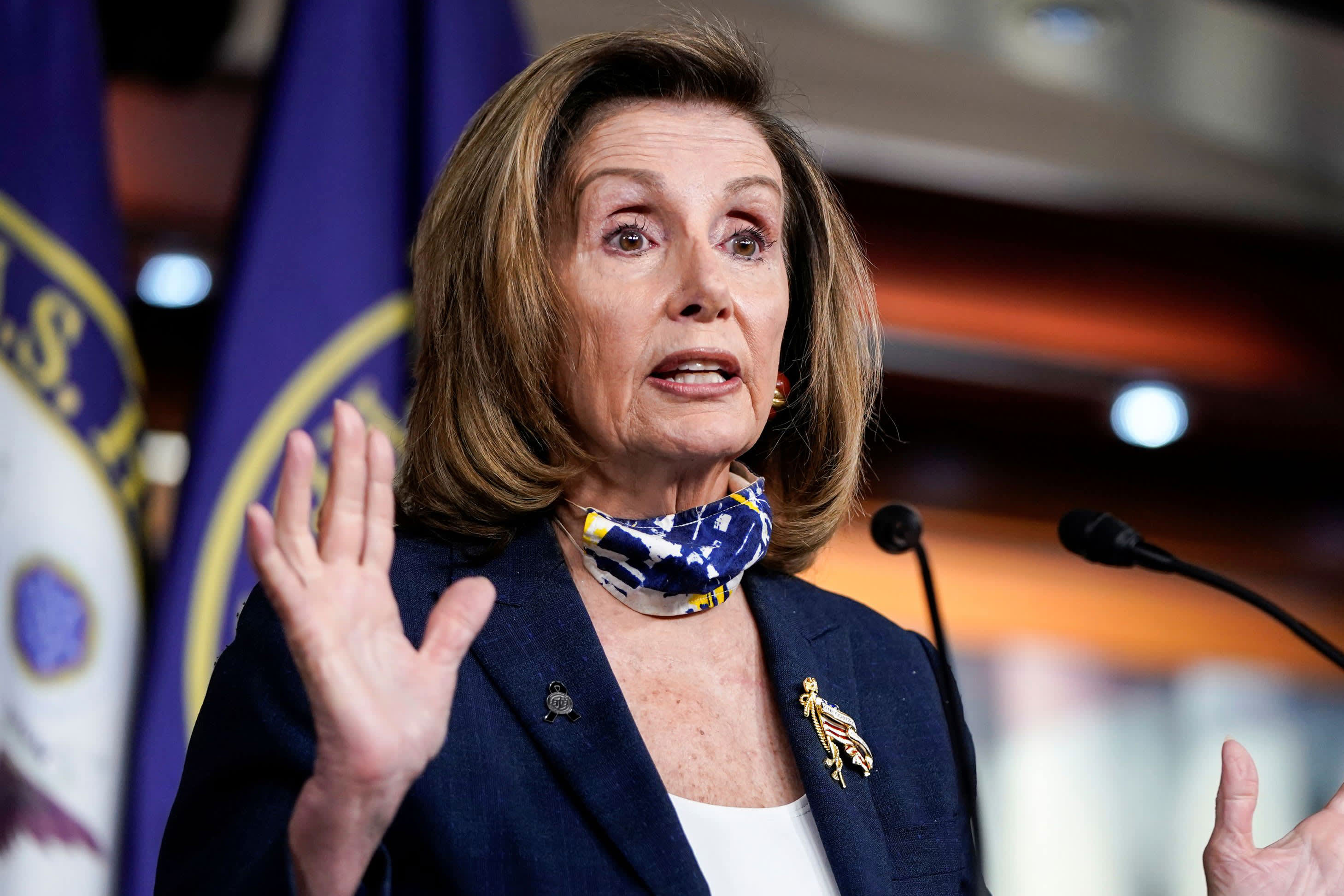House Speaker Nancy Pelosi and Treasury Secretary Steven Mnuchin failed to strike a coronavirus stimulus deal during a more than 90-minute meeting Wednesday.
The pair will continue discussions as they try to craft an elusive fifth relief package that could pass both chambers of Congress, the California Democrat said in a statement. House Democrats initially aimed to pass their roughly $2.2 trillion rescue legislation Wednesday night, but called off the vote until at least Thursday to allow more time for bipartisan talks.
Approving the bill would be a largely symbolic action as Senate Majority Leader Mitch McConnell has already opposed it.
The House speaker said she and Mnuchin had an “extensive conversation” and “found areas where we are seeking further clarification.” Entering the talks, Mnuchin said the White House and Democrats had reached common ground on issues including direct payments, small business loans and airline aid. But reports indicate they still need to resolve disputes over state and local government aid and liability protections for businesses, among other topics.
Speaker of the House Nancy Pelosi (D-CA) speaks during a briefing to the media on Capitol Hill in Washington, September 10, 2020.
Joshua Roberts | Reuters
Pelosi and Mnuchin met in person for the first time since last month, raising hopes of Congress approving more aid to boost the U.S. economy and health-care system before the Nov. 3 election. Both officials sounded more optimistic about the prospect of a deal earlier Wednesday as Mnuchin prepared to offer a roughly $1.5 trillion package to counter the Democrats’ proposal.
Speaking to reporters as he left the Capitol, the Treasury secretary said the sides “made a lot of progress over the last few days,” according to NBC News.
“We still don’t have an agreement, but we have more work to do. And we’re going to see where we end up,” he said.
After months of lawmakers wrestling over how much money to inject into the ongoing fight against the virus outbreak, it is unclear what could pass both chambers of Congress and get signed by President Donald Trump. The Republican-held Senate has grown more wary of spending federal dollars on the response as leaders in the Democratic-held House insist on a comprehensive relief package.
Vulnerable members of both parties have agitated to pass more aid ahead of Election Day.
The House this week released its latest coronavirus stimulus plan, which costs about $1.2 trillion less than the $3.4 trillion plan the chamber approved in May. To trim the price tag, it largely cuts back the amount of time for which money is allocated.
The package would reinstate the enhanced federal unemployment insurance at $600 per week through January and send another $1,200 direct payment to most Americans. It would set aside more money for a second round of Paycheck Protection Program loans for certain small businesses, provide another $25 billion in aid for airline payrolls, and send $436 billion in relief to states and municipalities over one year.
The bill would include rent and mortgage assistance funds, $75 billion for Covid-19 testing and contact tracing, along with more than $200 billion for education.
— CNBC’s Ylan Mui contributed to this report
